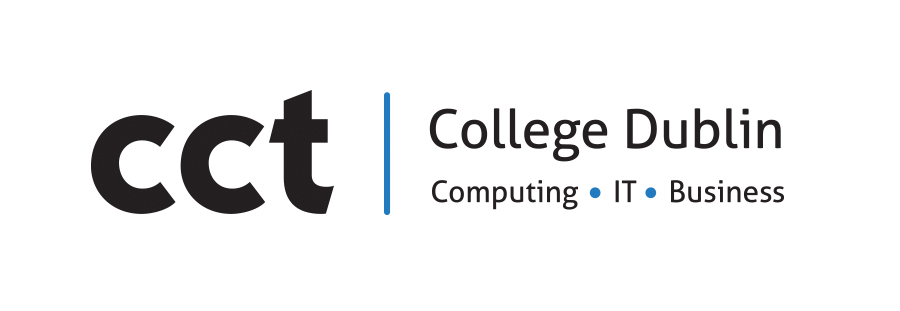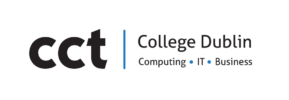BSc (Hons) in Computing and IT Course Overview
This BSc (Hons) in Computing and IT Degree course utilises a carefully designed programme schedule with modules focused on Computing in IT topics. The development of this programme was largely driven by demand from a number of industries, both those that operate directly in IT, and from those who require the solutions that computing in IT graduates design and implement (such as biotechnology, financial services, physical sciences, and more).
The design and development of modules within this IT degree were informed by extensive industry consultation. The collaboration with industry centred on the importance of developing problem solving and critical thinking skills within the learner, and a willingness to engage in self-directed learning. The consultation process also highlighted the importance of developing soft skills as these skills can be treated secondary to technical skills but are of significant importance when working in multicultural and diverse teams.
On completion of the BSc (Hons) in Computing and IT degree at CCT College Dublin graduates should:
Be Technically Skilled: Graduates will have the clarity and understanding of the subject area to be able to collaboratively diagnose a subject domain problem from the required overlying system architecture perspective. The ability and insight to be able to examine the contributing factors or components needed to develop the system solution (P.R.I.S.M.). Have the technical skills to be able to design and implement solutions across multiple platforms, utilising multiple programming languages to confidently integrate solutions. The graduate will also have the ability to gather data efficiently, to analyse data, to store and secure data, and to effectively deploy and manage enterprise and cloud-based service solutions.
Be a Problem Solver: The graduate will be able to anticipate the changing landscape of IT development, including the nature of problems and a way towards their potential solutions.
Have Professionalism: The graduate will have the capacity to recognise and appreciate the professional responsibilities and ethical implications of computing professionals and the solutions they design and apply.
Be a Strong Communicator: The graduate will be a clear, transparent communicator who understands their audience, ensuring the right level of detail is provided to assist in intelligent, informed decisions. The graduate will be confident in communicating with people encountered in industry including other computing professionals, business managers or executives, customers, or other stakeholders.
Be an Effective Team Player and Leader: The graduate will have the ability to work with other professionals, discussing work and managing and integrating feedback.
Full-time learners undertake the programme over four calendar years, comprising two semesters, commencing in September and February.
Year 1 – Stage One
- Programming – Object Oriented Approach
- Introduction to H.C.I. (Human Computer Interaction)
- Networking Technologies
- Computing Architecture
- Time and Task Management
- Discrete Mathematics for Computing
- Operating Systems
- Project Skills
- Client-Side programming
Year 2 – Stage Two
- Object Oriented Constructs
- Linear Algebra
- Wireless Networking
- Cloud Computing Fundamentals
- Databases: Approaches and Systems
- Server-side Programming
- Research Skills
- Network Services and Virtualization
- Cross Platform Development
- Business Information Systems
- Integrated Application Development
Year 3 – Stage Three
- Algorithms, Architectures and Design Patterns
- Advanced Numerical Methods
- Switching and Routing
- Distributed Digital Transactions
- Legal, Ethical and Privacy Issues
- Object Oriented Analysis and Design
- Concurrent Systems
- Data Storage Solutions
- Networks and Systems Security
- Commercial Solutions Design
Year 4 – Stage Four
- Artificial Intelligence
- Data Visualisation and Communication
- Data Exploration and Preparation
- Cloud Services
- Professional Development
- Machine Learning for Artificial Intelligence
- Strategic Business IT
- Problem Solving for Industry
Learners will attend lectures, workshops, and practical lab sessions during the programme and a variety of different instruments and formats will be used including text books, code, statistical data, journal articles, case studies, problem sets, and web-based content. These may feature as part of class-based activities or provided through Moodle. To facilitate a real-world experience, industry guest lectures will be invited to speak to students on a variety of IT and Computing topics to further strengthen, or challenge knowledge attained throughout the programme.
The programme strives to foster an environment of self-efficacy using integrated learning opportunities developed through the Integrated Assessment approach. A ‘Level Completion Module’ evolves that concept of integrated assessment, further cementing knowledge for the learner. These modules, at the end of each award stage, endeavour to bring together all the learning from the previous stage, or stages to promote a cumulative knowledge effect rather than a ‘do and forget’ learning experience.
This Degree in Computing and IT works towards bridging the skills gap in the current computing / IT sphere, with the emerging technologies, being classed as Innovation Accelerators, of Artificial Intelligence, Machine Learning and associated cognitive systems being utilised on a global scale for data conglomeration and manipulation, the traditional IT practitioner’s role has taken a significant shift. The programme strives to bring a learner through the necessary steps to be able to compete professionally in today’s labour market. The degree course will provide graduates with the ability to advance their career by attaining a qualification which enables them to secure or advance in employment in a range of entry and intermediate industry positions specific to computing and IT.
Graduates of this Degree in Computing and IT should be able to secure professional roles at entry and intermediate positions in computing and IT related industries, and progress to leadership or research roles using skills related to those learned in the programme curriculum. This IT degree will also provide graduates with the foundation upon which they can further their studies at level 9 (MSc) in Computing (including the MSc in Applied Software Development at CCT College) or one of many Computing-related disciplines (in Ireland or abroad) such as Computer Science, Computational Science, Information Systems, IT Management, Technology and Innovation Management, Information Security & Digital Forensics, Information Systems Processes, and others.
To be considered for entry on to the programme applicants should hold:
- A grade H5 or above in two higher level leaving certificate subjects together with a minimum of O6/H7 in four other subjects. This should include:
1.A grade of O6/ H7 or above in Leaving Certificate English,
2.A grade O6/H7 or above in Mathematics;
OR
- Holders of a FETAC/QQI major award Level 5 Certificate in Computing or Information Technology (or equivalent) or QQI/HETAC major award Level 6 Advanced Certificate in Computing or Information Technology (or equivalent) can apply for entry onto the programme.
- English language competency to CEFRL B2+ (IELTS 6.0) for students whose first language is not English.
- Applicants who do not possess the specified entry qualifications may demonstrate their potential to succeed through provision of other evidence as outlined in ‘Access’ below.
- All applicants should be confident in the use of basic computer applications.
- Applicants will be admitted to the programme based on their ability to evidence their potential to succeed. The possession of an Irish Leaving Certificate or equivalent school-leaving award from another country, at the appropriate level of achievement for admission to an honours degree programme in Ireland will be taken as a proxy of this achievement.
- Applicants with QQI Further Education awards at Level 5 (in cognate areas) or at Level 6 will be eligible to apply.
- Mature applicants who have reached the age of 23 on or before the 1st January in the year in which they are making the application are required to satisfy an Admissions Interview. Mature applicants may also be eligible for a Scholarship for this programme via CCT College Dublin’s partnership with Uversity. More information on this is available here.
- Learners presenting international qualifications will be subject to NARIC review for leaving certificate equivalence.
- Applicants who do not possess the specified entry qualifications may demonstrate their potential to succeed through provision of other evidence including current or prior experiential or certified learning, and / or through the completion of an assessment set by the College. Such applicants will normally be required to attend an interview. In all cases applicants will be assessed on their ability to evidence appropriate academic standards and written English competency. Applications for Recognition of Prior Learning will be reviewed in accordance with CCT’s policies on the Recognition of Prior Learning CCTP602 – Recognition of Prior Learning (RPL), Transfer and Exemptions http://www.cct.ie/about.qa/
As an independent higher education institution, tuition fees are payable on this programme. Fees may vary on whether you are living in Ireland or living abroad at the point of application. Please view fees for all programmes at this link.
Leandro Silveira – BSc (Hons) in Computing and IT
Leandro graduated from the BSc in Computing and IT at CCT College Dublin. He is now working as a Platform Engineer at IBM Ireland.
Caue Duarte – BSc (Hons) in Computing and IT
On completion of the Computing and IT Degree at CCT College Dublin Caue was successful in obtaining a graduate IT position which then led him nicely into his current position as a Full Stack Software Engineer with Kantan AI. His advice is to not be afraid of making errors in your work and cover all your basics in programming before advancing to the more complex areas. It clearly works as Caue achieved top marks in his year and was awarded Student of the Year at the 2021 Graduation.
We are hosting a number of events in the lead up to the next academic year to give prospective students the opportunity to find out more about their course and the College. At the moment these events are virtual and you can pre-register here.
You can also make a safe socially distanced 1-2-1 appointment with an Admissions Advisor in the College campus building here from 9am-5pm Monday to Friday.
All QQI accredited programmes of education and training of 3 months or longer duration are covered by arrangements under section 65 (4) of the Qualifications and Quality Assurance (Education and Training) Act 2012 whereby, in the event of the provider ceasing to provide the programme for any reason, enrolled learners may transfer to a similar programme at another provider, or, in the event that this is not practicable, the fees most recently paid will be refunded.
How to apply
Application for entry to this programme can be made via the CAO (CAO Code CT125) or directly to the CCT College Dublin Admissions Office.


